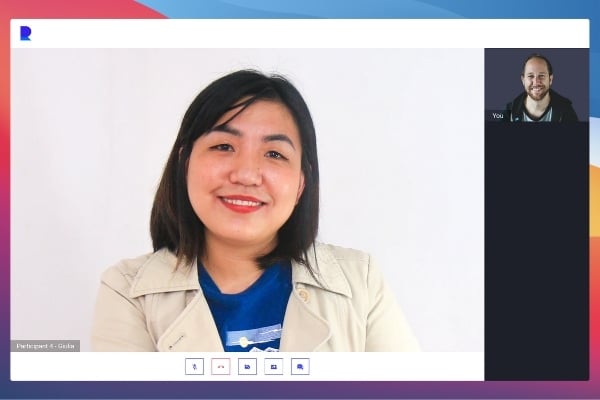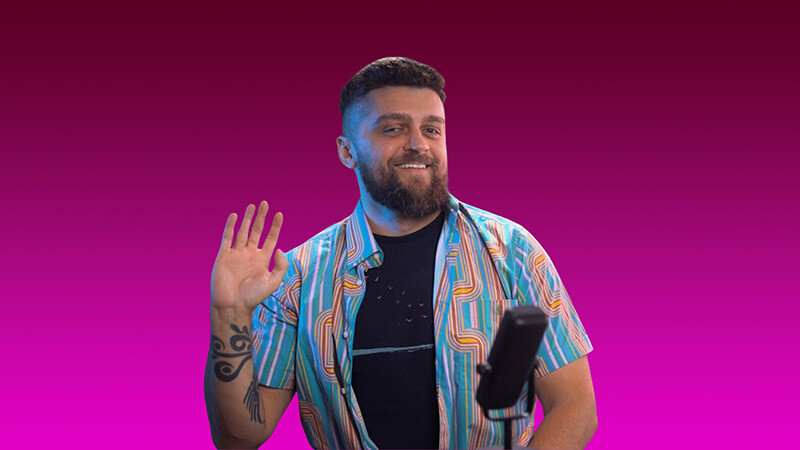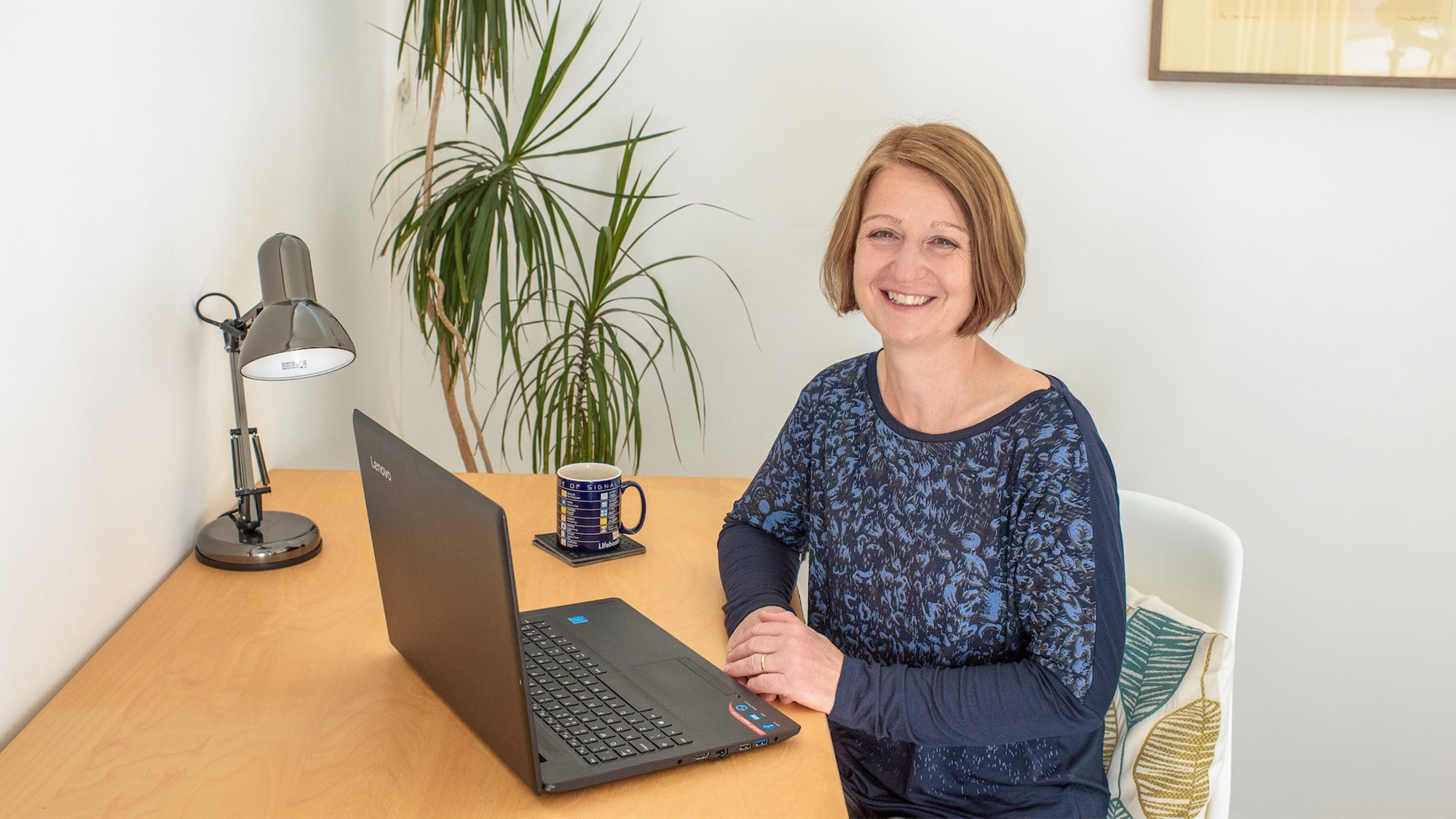Seven founders share their thoughts on company culture
It’s an age-old question. What is good company culture? Let’s face it every founder will have a different answer. Regardless, it’s one that founders ...
Manage your equity and shareholders
Share schemes & options
Fundraising
Equity management
Start a business
Company valuations
Launch funds, evalute deals & invest
Special Purpose Vehicles (SPV)
Manage your portfolio
Model future scenarios
Powerful tools and five-star support
Employee share schemes
Predictable pricing and no hidden charges
For startups
For scaleups & SMEs
For larger companies
Ideas, insight and tools to help you grow

Customer feedback on products is invaluable. It's crucial to product managers, designers and user researchers.
In true entrepreneurial style, Axel Thomson founded Ribbon, an app he wished was around when he was a product manager. Ribbon is an app that makes it a whole lot easier to connect product teams with users.
Hi Axel! Tell us a bit about your company.
Ribbon is a user research platform that helps product and user research teams interview real users in context.
By integrating directly with your website, we make it easy for product managers, user researchers and designers to make informed product decisions by helping them recruit and interview real users.
How did the idea for Ribbon come about?
I was previously a product manager at a scale-up in London, and we realised quite quickly how difficult it can be to continuously make informed product decisions.
Usually, you have access to a few dashboards with quantitative data about what your users are doing, but understanding why they are doing it, and what that means for your product can be difficult to do at speed.
Ribbon is the platform I wish I had as a product manager! We help people who build products connect with their users and test ideas, designs and features quickly and continuously without having to compromise on speed or research quality.
What does company culture mean to you?
Someone once told me that culture is the outcome of lots of smaller decisions and habits playing out over time in a company, and I tend to agree. We are what we do, so it's important to be intentional about what type of behaviour and outcomes we value in our day to day work and decisions.
Specifically, we're in the business of helping other researchers help their end-users by building great products, which requires a mindset that you don't know all the answers, but are willing to make well-intentioned bets and can learn along the way.
Building a company it's not much different, so those same traits seem to shape our culture.
Couldn't agree more! So how do you keep your team aligned?
We're a product-focussed company in the user research space, so two things matter above all else: Understand how we can help our users achieve their goals and build a product to support that.
Once you purposefully set a culture around what matters and what we care about solving as a company it becomes easier to stay aligned.
We're also a small team based out of London, mixing remote and in-person working, so we're fortunate that it's relatively easy to stay on the same page even when things change quickly.

Can you share any practical tips or processes to help people work remotely?
Focusing on communicating a lot (more than we would normally) and setting clear goals has been important for us. If everyone knows what matters for you as a company, it's easier for each team member to make decisions about what should be prioritised.
We're also a small team, so we've managed to avoid a lot of the challenges that larger teams face when working remotely.
Do you have a share or option scheme in place for your team? If so, what impact has it made?
We do, it's a great way to keep everyone aligned. We're growing a company, and we want our entire team to be bought into that mission and have some skin in the game.
That's great to hear! What is the biggest mistake you've made as an entrepreneur?
I'm human, so naturally, I make mistakes all the time. I don't think it's a useful goal to try to never make any mistakes at all. We would get nowhere if we did.
But the biggest mistakes have usually been not changing my behaviour after realising a mistake has been made, by repeating the same mistake twice.
Have you ever experienced a business disappointment that led to something better?
We're very intentional about the fact that we don't yet know all the answers, and that we'll have to course-correct and update our beliefs all the time. That's just how research works.
This mindset serves us well, especially when things don't work out as we'd hoped. It's rare that one disappointment puts the entire company at risk, so if we're comfortable with acknowledging that we didn't make the right decision but now know better, we can learn and improve quickly over time.
Give us an interesting fact about yourself that the business community doesn’t know.
I've picked up long-distance running as a side-project, so I'm now in a constant battle with my knees about who will give way first.

Stick with it. Final question, who would play you in a film of your life?
Good question, I really hope they don't make a film about an office worker. It wouldn't make for very interesting watching.
With a little artistic license, it could be an action-packed office thriller...
Thanks for your time Axel. All the best!

It’s an age-old question. What is good company culture? Let’s face it every founder will have a different answer. Regardless, it’s one that founders ...

From one podcast host to another! Ifty Nasir chatted with Biro Florin, the co-founder of Jexo and the host Misfit Founders podcast.

One of the toughest challenges founders face is raising funds. Recognised as one of the Top 50 Business Advisers by Enterprise Nation, Hatty Fawcett...